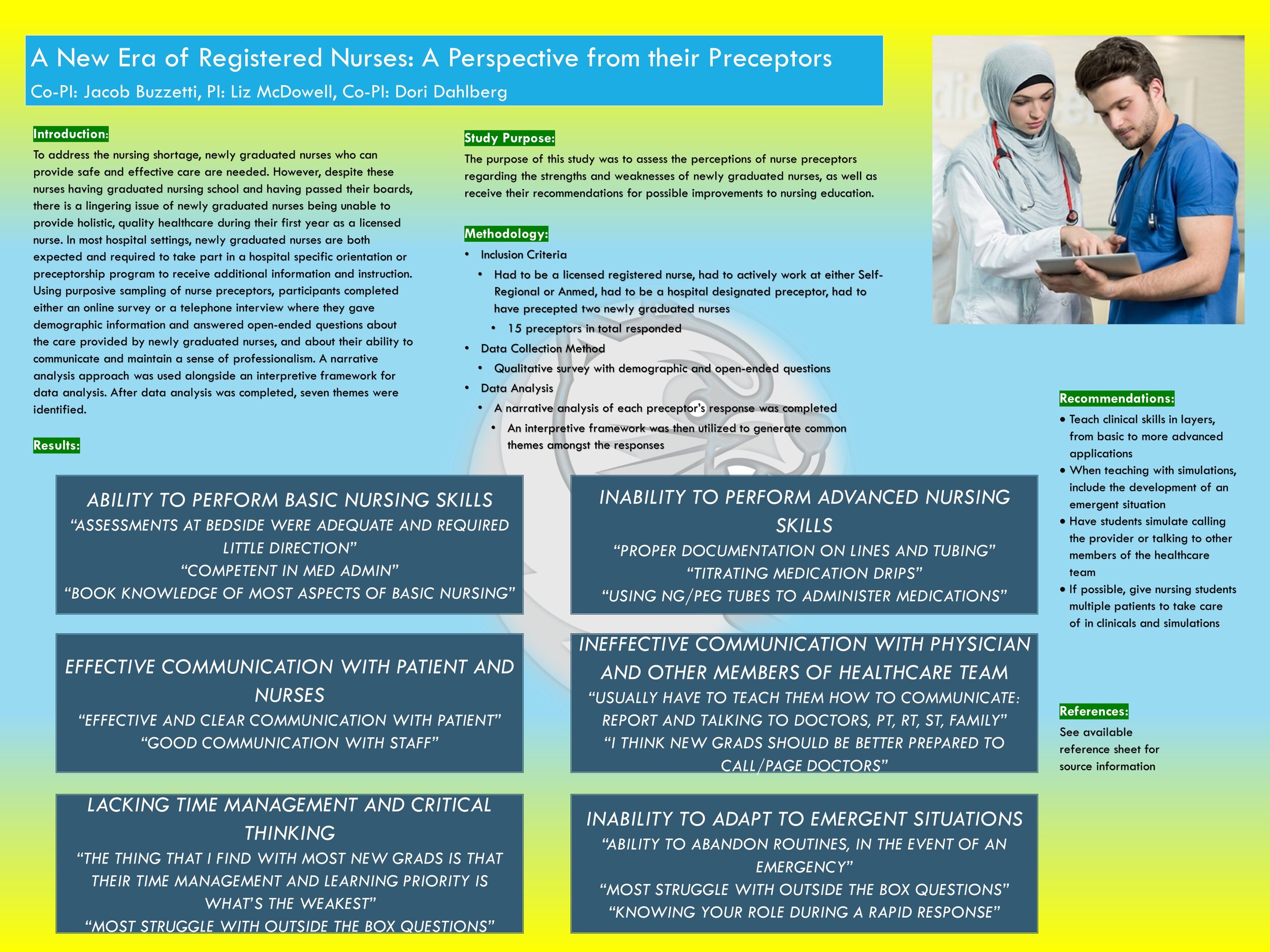A New Era of Registered Nurses: A Perspective from Their Preceptors
Jacob Buzzetti
To address the nursing shortage, newly graduated nurses who can provide safe and effective care are needed. However, despite these nurses having graduated nursing school and having passed their boards, there is a lingering issue of newly graduated nurses being unable to provide holistic, quality healthcare during their first year as a licensed nurse. In most hospital settings, newly graduated nurses are both expected and required to take part in a hospital specific orientation or preceptorship program to receive additional information and instruction. The purpose of this study was to assess the perceptions of nurse preceptors regarding the strengths and weaknesses of newly graduated nurses, as well as receive their recommendations for possible improvements to nursing education. Using purposive sampling of nurse preceptors in two different hospitals, participants completed either an online survey or a telephone interview where they gave demographic information and answered open-ended questions about the care provided by newly graduated nurses, and about their ability to communicate and maintain a sense of professionalism. A narrative analysis approach was used alongside an interpretive framework for data analysis. After data analysis was completed, the following themes were identified: New graduates are able to perform basic nursing skills, however they lack ability to perform advanced nursing skills. New graduates demonstrate effective communication with patients and other nurses, but struggle in communicating with physicians and other members of the health care team. New graduates lack time management and critical thinking skills and they demonstrate an inability to adapt to emergent situations.
Jacob Buzzetti is a senior nursing major at Lander University. He is a part of the Honors College and works as a tutor for other students at Lander seeking help in areas such as anatomy, physiology, organic and inorganic chemistry, and pharmacology. He is a member of various volunteer organizations on campus, such as LUSNA, the Rotaract Club, and Habitat for Humanity. His future career goal includes working at the Intensive Care Unit at Self-Regional Healthcare.
